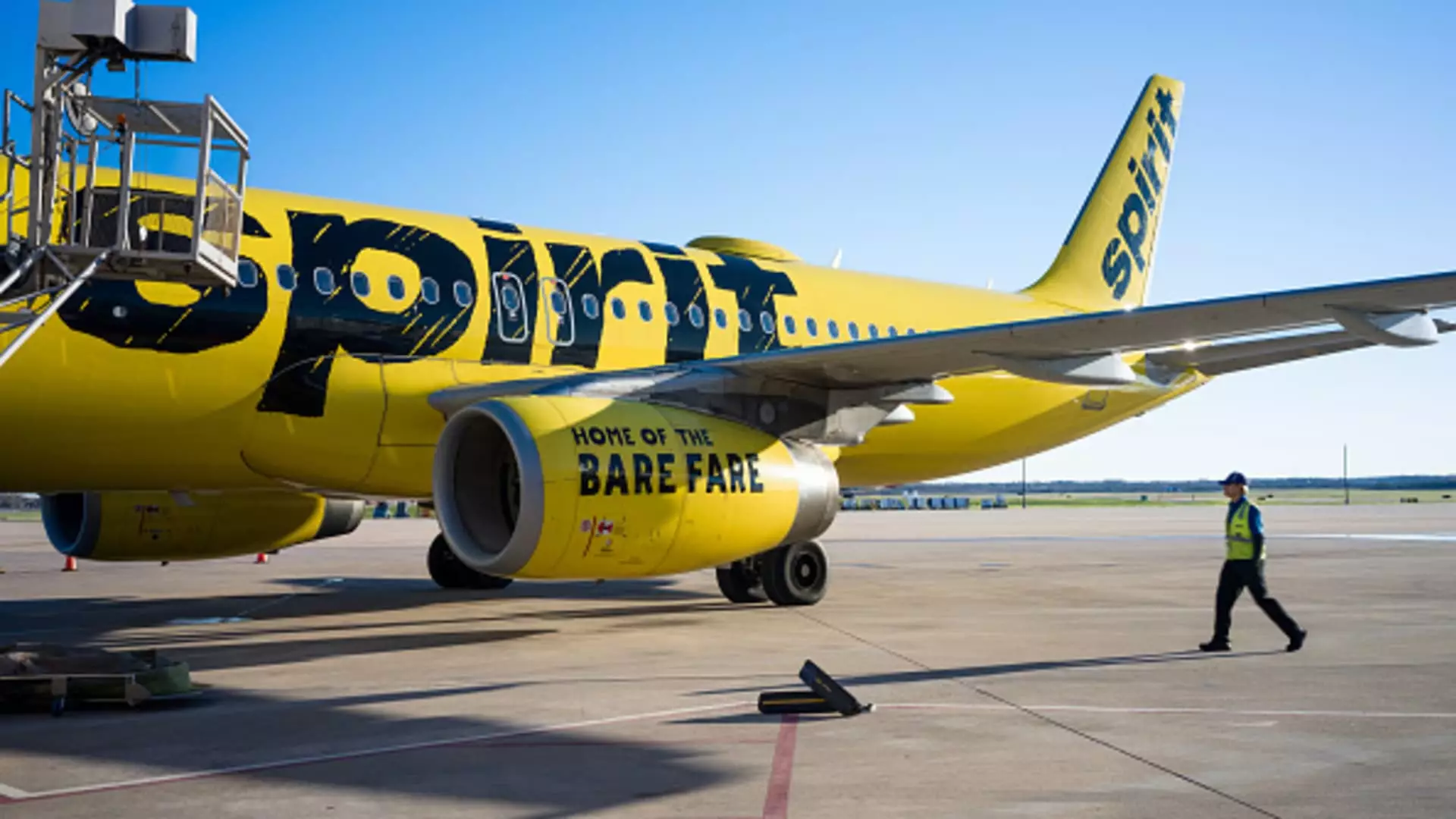Spirit Airlines recently announced that it will be deferring deliveries of new Airbus planes in an attempt to boost its liquidity. This decision comes as the airline tries to navigate through a challenging period and secure a strong and profitable future. CEO Ted Christie emphasized the necessity of these steps, despite not being ones that the airline ideally wants to take.
The deferral of all Airbus planes that were scheduled to be delivered from the second quarter of 2025 through the end of 2026 will now take place in 2030 and 2031. This move is expected to increase the airline’s liquidity by approximately $340 million over the next two years. By taking this action, Spirit aims to reset its business and focus on its core airline operations while adapting to the changing competitive landscape.
As part of its efforts to address liquidity challenges, Spirit Airlines also announced plans to furlough about 260 pilots. These furloughs are expected to take effect in September, adding to the existing leaves of absence already in place for flight attendants. However, there are no current plans for cabin crew furloughs, according to the Association of Flight Attendants union.
In light of the pilot furloughs, Spirit is closing its crew base in Atlantic City, New Jersey, and will be reassigning staff to other locations. The Air Line Pilots Association, the union representing Spirit pilots, is exploring voluntary measures to limit the number of furloughs in an effort to mitigate the impact on its members.
Spirit’s decision to defer Airbus deliveries comes at a time when airlines are facing challenges related to aircraft availability. With the grounding of many of its Airbus planes due to a Pratt & Whitney engine recall, Spirit has been working to address liquidity concerns and reassure investors of its future prospects.
The airline’s planned acquisition by JetBlue Airways was called off earlier this year following a ruling that deemed the deal anti-competitive. To alleviate some of the financial strain caused by the grounded engines, Spirit will receive monthly compensation payments through the end of 2024.
Spirit’s move to defer Airbus deliveries reflects broader industry challenges related to aircraft availability. Other airlines, such as United Airlines, have also faced issues with delayed aircraft deliveries, leading to adjustments in hiring and training practices. The scarcity of aircraft has marked a significant shift from the pilot shortage experienced during the pandemic recovery period.
United Airlines, for example, has offered unpaid time off to pilots due to delayed plane deliveries from Boeing and uncertainties surrounding the certification of certain aircraft models. The impact of these industry-wide challenges underscores the complexities that airlines face in managing their operations and liquidity.
Spirit Airlines’ decision to defer Airbus deliveries and implement pilot furloughs highlights the ongoing challenges that the airline industry continues to face. By taking proactive steps to address liquidity concerns and adapt to changing market conditions, airlines like Spirit are positioning themselves for long-term success amidst industry disruptions.

Leave a Reply